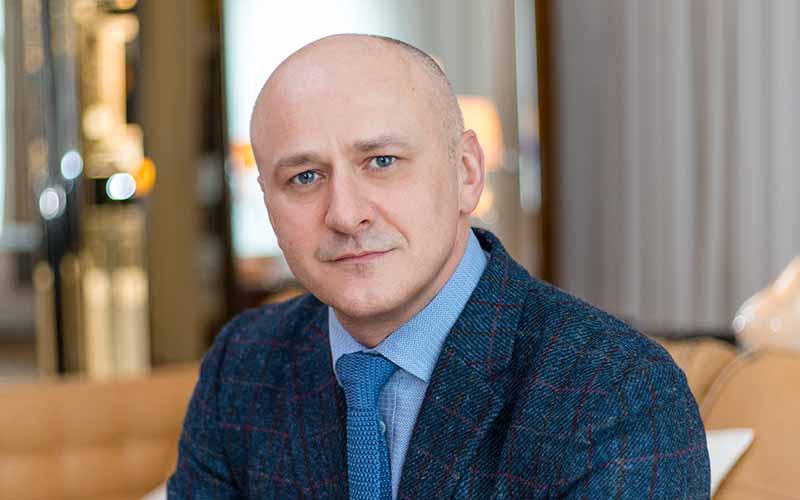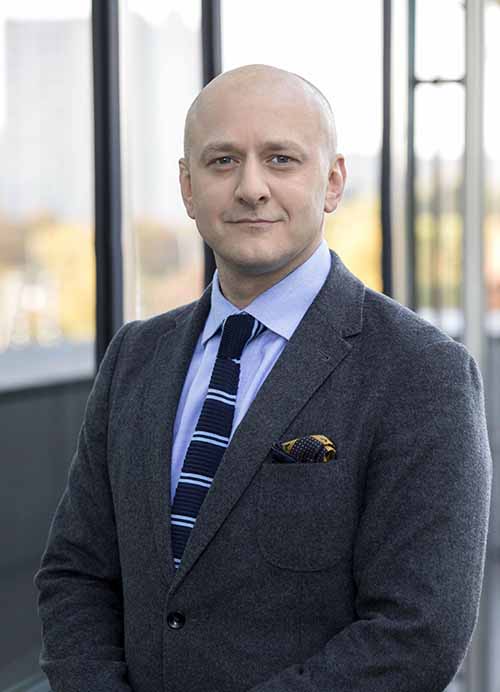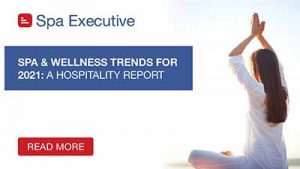
Emlyn Brown, Vice President, Wellbeing for Accor Luxury & Premium Brands shares insight with Spa Executive about changing consumer expectations and quantifying the ROI of wellness in hospitality.
Accor is a world-leading hospitality group with more than 5,100 hotels, resorts, and residences across 110 different countries. The Group has one of the industry’s most diverse and fully-integrated hospitality ecosystems encompassing luxury and premium brands, midscale and economy offerings, unique Lifestyle concepts, entertainment and nightlife venues, restaurants and bars, branded private residences, shared accommodation properties, concierge services, co-working spaces and more.
A company that embraces wellbeing, innovation and technology, Accor has recently launched new initiatives that include Pullman Power Fitness Fueled by Les Mills, making Pullman the first boutique fitness hotel brand with around-the-clock innovative fitness classes, in-room fitness amenities, challenging boot camps, and Pullman Fitness Squad events. Another initiative is the in-room sleep wellness program at select Fairmont Hotels in North America. The program is designed by Three Sages and features an app that guides guests through restorative yoga, stretching, breath work, mindfulness and sleep practices.
Emlyn Brown is Vice President, Wellbeing for Accor Luxury & Premium brands. A respected figure in the hospitality industry and devoted wellbeing advocate, Mr. Brown has worked with some of the best-known hospitality companies and consultancies in the world and has said his goal is “to surpass the expectations of our guests and to infuse their entire experience with opportunities for transformative, innovative and extraordinary moments of wellbeing.”
is Vice President, Wellbeing for Accor Luxury & Premium brands. A respected figure in the hospitality industry and devoted wellbeing advocate, Mr. Brown has worked with some of the best-known hospitality companies and consultancies in the world and has said his goal is “to surpass the expectations of our guests and to infuse their entire experience with opportunities for transformative, innovative and extraordinary moments of wellbeing.”
We spoke with him about changing consumer expectations and quantifying the ROI of wellness initiatives in hospitality. Here’s what he had to say.
Please talk a bit about your career trajectory.
I started working in the health club industry many years ago and later felt that the spa industry would be a great opportunity for me to apply my skills in fitness and exercise and things that I was passionate about, while traveling and working around the world. I worked at Jumeirah’s Burj Al Arab in Dubai, then with Six Senses in Asia before moving on to work with consultancies, including GOCO hospitality, based in Bangkok, and Resense, based in Beijing. About two and a half years ago, I joined Accor as VP of Wellbeing. I’ve been fortunate to work with leading wellness consultants, companies and hotel brands and have covered everything from operations to design development to finance feasibility. I suppose it’s that diversity of experience that allowed me to assume the role with Accor.
I think working in health clubs provided a good grounding in terms of commercial and business application towards health and wellbeing. I realized in the late 90s and early 2000s that this was a growth industry and that there was a more holistic approach to people’s wellness and wellbeing.
In the Accor Wellbeing White Paper, I read about how consumer expectations are changing. Can you talk about that?
There is a continuing acceleration of the adoption of health and wellbeing practices. We know that 75%-80%, of our guests are taking active steps to improve their health on a daily basis, and that the wellness traveler spends about 55% more than the normal leisure traveler within the property.
This is going to get even bigger as people develop a deeper understanding that health is wealth. We will see strong acceleration in three key areas. One of these is understanding of the power of nutrition and things like gut health and intermittent fasting. Another area is exercise and movement. Exercise is now completely mainstream and the expectation from people coming into our hotels for a high-quality exercise experience across multiple living areas is a key driver. Third is the adoption of mindfulness and meditative practice. People are turning towards meditative practice, meditative apps, moments of peace, and breathing exercises to help deal with the stress of daily life. These things are going to influence how we create and develop programs and services within the hotel landscape.
Also, with COVID came the acceleration of adoption of digital practice for us as an industry. How can we get the wellness message out to a broader audience using digital apps and online messaging? That’s going to be a significant shift.
Do you think the hotel industry has a good understanding of the ROI of wellness?
The idea of measuring ROI is sometimes a difficult one. We always take a strong stance to ensure financial feasibility and understanding of the market when creating new wellbeing facilities within our hotels. But now that people have a more sophisticated understanding of what creates success, I think that the overall ROI on wellbeing needs a stronger measurement.
For me, the measurement is what I would call the “drive and aspiration” to visit a property and the attractiveness of wellness and wellbeing activity. It’s a bit of a non-tangible discussion, but what makes a person actually click through and book a hotel? The aspirations to participate in health and wellbeing, spa experiences, and recreational activities are important drivers for properties to attract guests. If you look at the reasons why consumers actually visit properties or become loyal to certain brands, you’ll find that wellness plays a very important role.
What are some challenges you expect the industry to encounter in the foreseeable future?
Naturally, the challenge of the moment is waiting for the COVID situation to stabilize. When that happens, we will see the impact of significant pent-up demand for travel. The industry needs to be ready. There will be peaks and troughs. Travel will probably first be hyper local, then more regionalized, before spreading out globally.
Long haul travel will take a little while to return and that will impact spas, but the industry can capitalize on this heightened interest in health and wellbeing. Resort locations will have an easier time. Urban locations will need to focus on local customer capture, which will be a bit of a change. That wasn’t the primary focus for the hotel spa before and will mean a change in sales and marketing activity.
What industry developments or movements are you excited about?
One thing that excites me is the use of equipment and technology in spa and wellbeing to help support and accelerate recovery. Things like infrared sauna, hyperbaric oxygen therapy, IV therapy, LED facial support, cryotherapy, floatation … these things are quite interesting from both a consumer and business point of view. From a yield perspective and a membership perspective, there is a lot of opportunity in that crossover from the classical spa towards something supported by equipment and technology to support wellness, detoxification, recuperation, and rejuvenation.
I also like the idea of traveling retreat programs and pop-up destination spas and wellbeing in many of our properties around the world. If you bring the right experts to a property for a fixed period of time, like two or three weeks, then you pick it up and bring it somewhere else, you can create destination wellbeing retreats at various locations around the world. That’s an exciting opportunity. These are things we’re looking at adopting within our group.
What are you excited about at Accor?
We’re proud of our Power Fit program for Pullman, for which we have partnered with Les Mills for a video-on-demand concept of fitness across Pullman Hotels & Resorts locations worldwide. We’ve also created a group of fitness ambassadors in each of our global regions – young, entrepreneurial, dynamic fitness people to help generate interest and coach people to move and get fit.
We’re going to be refreshing the Fairmont spa brand, launching a new identity for the spa with three fantastic openings happening this year in Los Angeles, Windsor, and Taghazout Bay, Morocco. All three are going to be world-class facilities.
And then we’ve got a semi destination hotel-resort spa opening in Southern Spain under the SO/ umbrella, in Sotogrande. It’s three and a half thousand square meters including fitness, sport, and spa with a wellbeing focus. That’s something quite exciting. These openings are the fruition of a number of years of work and some strong steps forward in terms of what we feel wellbeing is within our properties.
Subscribe to our newsletter and download our special report: Nine spa and wellness trends for 2021. Download here.
Spa Executive is published by Book4Time, the leader in guest management, revenue and mobile solutions for the most exclusive spas, hotels, and resorts around the globe. Learn more at book4time.com.




